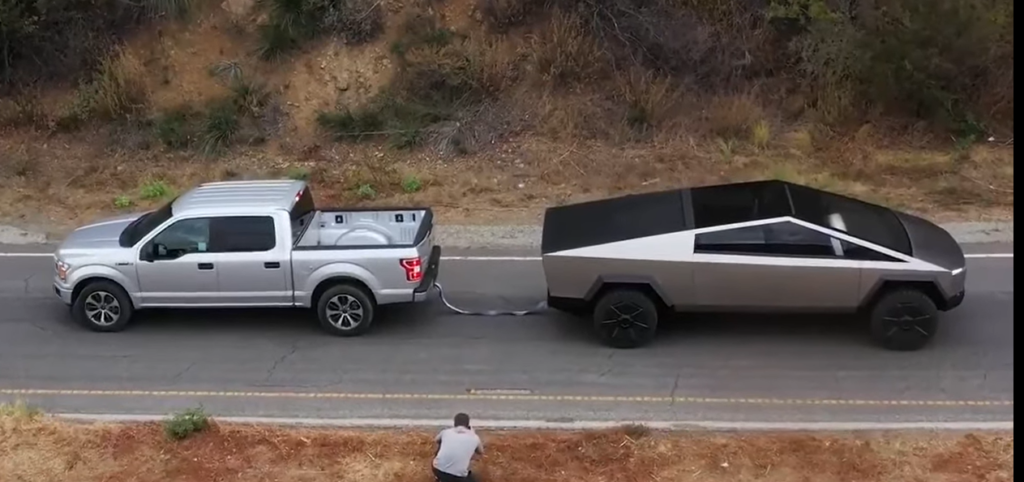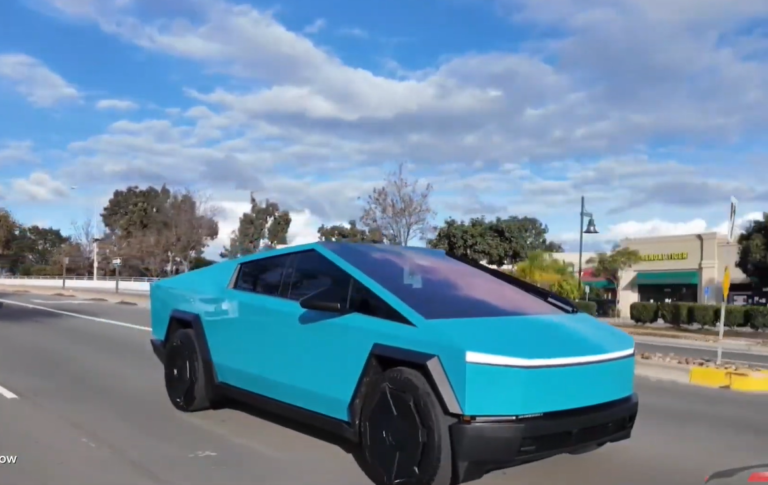How Many Tesla Cybertrucks Have Been Sold
The Tesla Cybertruck has made waves in the automotive industry since its reveal, and many automotive enthusiasts are eager to understand how this unique electric vehicle is performing on the sales front. Have you ever wondered how many Tesla Cybertrucks have been sold or how they stack up against traditional competitors? In this article, we’ll explore the sales figures, production statistics, and overall market impact of the Cybertruck, providing an engaging and informative look into this revolutionary vehicle.
A Brief Overview of the Tesla Cybertruck
First unveiled in November 2019, the Tesla Cybertruck broke the mold of conventional truck design with its striking, angular appearance and durable exoskeleton made from ultra-hard 30X cold-rolled stainless steel. This futuristic vehicle was designed to be both rugged and utilitarian, catering to consumers who crave adventure, capability, and cutting-edge technology. From its impressive towing capacity to its advanced autonomous driving features, the Cybertruck represents a bold step forward for Tesla in the electric vehicle market.
When Tesla first announced the Cybertruck, excitement surged as reservations poured in. Many people were eager to get their hands on this innovative truck, leading to an astounding number of reservations amounting to approximately 2 to 3 million units. However, the actual conversion from reservations to sales has been a topic of discussion among car enthusiasts and industry analysts alike.

How Many Tesla Cybertrucks Have Been Sold?
As of the third quarter of 2024, Tesla’s Cybertruck is enjoying remarkable sales performance. According to the latest figures from Kelly Blue Book’s electric vehicle sales report, the Cybertruck sold 6,692 units in just the third quarter of 2024. This brings the year-to-date total to an impressive 28,250 units sold in the United States alone. These figures demonstrate how effectively the Cybertruck has penetrated the market since its relatively short time on sale.
In comparison to its rivals, the Cybertruck stands out significantly. During the same quarter, traditional competitors like the Ford F-150 Lightning sold 7,162 units, which, while respectable, is only marginally higher than the Cybertruck’s numbers. Other competitors like the Rivian R1T and the Chevrolet Silverado EV lagged behind, with 3,817 units and 1,995 units sold respectively. The Cybertruck’s sales performance highlights its growing popularity and the strong demand for electric trucks.
How Many Tesla Cybertrucks Have Been Made?
Production of the Tesla Cybertruck has also been a hot topic. From November 2023 to September 2024, Tesla has produced 27,185 Cybertruck units. This figure averages out to approximately 2,471 units per month, or roughly 618 units per week. The steady production rate suggests that Tesla is ramping up to meet the high demand for electric trucks, despite some challenges related to production delays and supply chain issues that have affected the broader automotive industry.
Given the unique design and engineering of the Cybertruck, production has not been without its difficulties. The exoskeleton’s material and design choices may present challenges in manufacturing consistency, but Tesla appears to be managing these hurdles effectively, ensuring that they maintain a steady output of this highly anticipated vehicle.
The Gap Between Reservations and Actual Sales
While the sales numbers are impressive, one intriguing aspect of the Cybertruck’s performance is the conversion rate from reservations to actual sales. Out of the estimated 2 to 3 million reservation holders, only about 2.5% have made a purchase. This low conversion rate can be attributed to several factors including changes in truck specifications and pricing adjustments since the initial announcement.
Many of the early reservation holders were enticed by the initial promises of groundbreaking specs and features that have since changed. Some consumers have also expressed concerns over the vehicle’s design and practicality. The Cybertruck’s unconventional looks may not appeal to every traditional truck buyer, leading to further hesitation among potential purchasers.
The Tesla Cybertruck vs. Traditional Trucks

With significant sales in its first year, the Cybertruck has demonstrated its ability to compete with traditional trucks in the electric vehicle segment. The strong sales numbers indicate that Tesla’s unique approach to electric trucks resonates with consumers looking for something different in terms of functionality, design, and technology.
While some may question the validity of the Cybertruck’s design, many have found that its capabilities cannot be overlooked. The Cybertruck offers an electric range that rivals some gasoline-powered trucks and features advanced technologies such as Autopilot capabilities and over-the-air software updates, providing a modern touch that has become synonymous with the Tesla brand.
The Future of Tesla Trucks
Looking ahead, the future of Tesla trucks appears bright. The combination of increasing consumer interest in electric vehicles and Tesla’s proven track record for innovation puts the Cybertruck in a favorable position for continued success. As more consumers become aware of the benefits of electric trucks, including lower operational costs, minimal maintenance, and environmental benefits, the appeal of the Cybertruck is likely to rise.
Furthermore, as Tesla continues to improve upon its production methods and expand its supply chain, we can expect to see more Cybertrucks on the road. The automaker is also expected to release updated versions, which could address some of the concerns raised by early reservation holders and further boost sales.
Addressing the Market Demand
With the growing competition in the electric truck market, including from established brands like Ford and General Motors, Tesla faces the challenge of maintaining its edge. The sales figures for how many Tesla trucks have been sold illustrate a need for Tesla to remain innovative and responsive to customer needs. The Cybertruck’s performance can be viewed as a litmus test for how well Tesla can adapt its offerings to fulfill market demands.
Consumer feedback will play a crucial role in shaping future iterations of the Cybertruck as Tesla strives to enhance features and specifications based on real-world usage and preferences. Through continuous improvements and adaptations, Tesla can solidify its position in the electric truck market, enticing more consumers to make the switch from traditional gasoline-powered trucks.
Conclusion
As we delve into the world of electric trucks, it is clear that the Tesla Cybertruck has made a significant impact in a short period. With 6,692 units sold in the third quarter of 2024 and a total of 28,250 units sold year-to-date in the U.S., there is no denying that the Cybertruck is emerging as a formidable player in the market.
While the number of units produced stands at 27,185, and the conversion rate from reservations remains a topic for further analysis, the future looks promising for Tesla. The Cybertruck not only represents a new chapter for Tesla but also sets a precedent for potential innovations in the electric vehicle segment. As Tesla continues to refine its production processes and respond to consumer feedback, we can expect the Cybertruck to solidify its place in the automotive landscape while encouraging more drivers to embrace the electric vehicle revolution.
In this evolving narrative, it will be interesting to see how many Tesla Cybertrucks have been sold in the coming months and how they adapt to meet the needs of a growing customer base. Whether you’re a Tesla enthusiast, a traditional truck lover, or a curious consumer, the Cybertruck is undoubtedly a symbol of the future of automotive technology.


